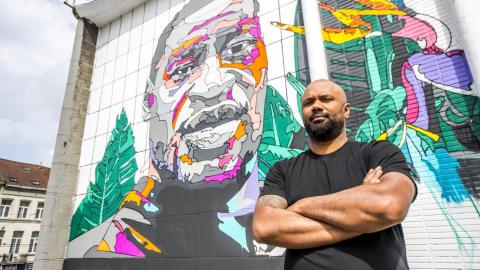Still too few figures on inequality and discrimination in Belgium

There are still too few figures on inequality and discrimination in Belgium, say Unia and the Equal Opportunities Team of the Federal Public Service (FPS) Justice. “For example, if you want to find out whether people of other origins have equal access to healthcare in Belgium, it will be difficult to find reliable data. We urgently need more high-quality data to map equality or inequality in key domains in Belgium”, emphasizes Els Keytsman, director of Unia.
Unia, in partnership with the Equal Opportunities Team of the FPS Justice, has carried out a project aimed at improving the collection and development of equality data in Belgium this year. Keytsman: “First of all, it was important to map which data on equality or inequality are already available in Belgium: many data are fragmented or difficult to find.
Unia has therefore developed a ‘data hub’ that now inventories all data sources in Belgium for three groups of discrimination criteria: (1) the five so-called ‘racial’ criteria, (2) religious and philosophical beliefs, and (3) sexual orientation, gender identity, gender expression and gender characteristics. During the process of gathering these data sources, we soon noticed that still too few data are available on certain themes or groups.”
For example, there are no reliable figures on access to health care based on so-called ’racial‘ criteria. "Did everyone get the same access to health care during the corona pandemic? We simply don’t know. There is also a lack of reliable data on discrimination or racism in the context of police actions – a very topical issue during the Black Lives Matter protests.” Unia also notes that still too few data are being collected about inequality based on sexual orientation or religion and religious and philosophical beliefs.
Data as an impetus for change
The lack of reliable data is problematic, says Els Keytsman: “When there are no or few figures on a theme, emotions quickly take over. Reliable figures help create a discussion that is based on facts rather than gut feelings.” Reliable data are therefore essential for civil society organizations, policymakers or academics to set things in motion. They help to identify problems and to solve them through policies based on facts and not on intuition.
The State Secretary for Gender Equality, Equal Opportunities and Diversity Sarah Schlitz stressed that: "To measure is to know. On the basis of objective data, policies can be adjusted and supplemented where necessary. This is necessary in order to conduct an ambitious equal opportunities policy in Belgium. The collaboration between Unia and the Equal Opportunities Team is therefore an essential first step in the right direction. The support of Europe was essential in this."
Need for a coordinated approach
There is currently no coordinated approach for the collection and development of data on equality and discrimination in Belgium. Unia therefore strongly recommends that this will be the focus in the future, and is eager to be engaged in the work ahead. “A coordinated approach would be an important step forward”, agrees Daniel Flore, Director-General of the FPS Justice (Legislation, Fundamental Rights and Freedoms). “In addition, there is also a need for awareness-raising and debate, so that collecting data on, for example, the so-called racial criteria, sexual orientation or religious and philosophical beliefs becomes less of a taboo. Collecting these data is often a delicate matter. However, mapping the existing inequalities is only possible when certain data are collected.” Unia has published all insights and recommendations about collecting and developing ‘equality data’ in a report this week.
Context
The project “Improving equality data collection in Belgium” (IEDCB) is a Belgian project co-financed by the European Commission's Rights, Equality and Citizenship (REC) programme. Unia has carried out this project in partnership with the Equal Opportunities Team (FPS Justice).
